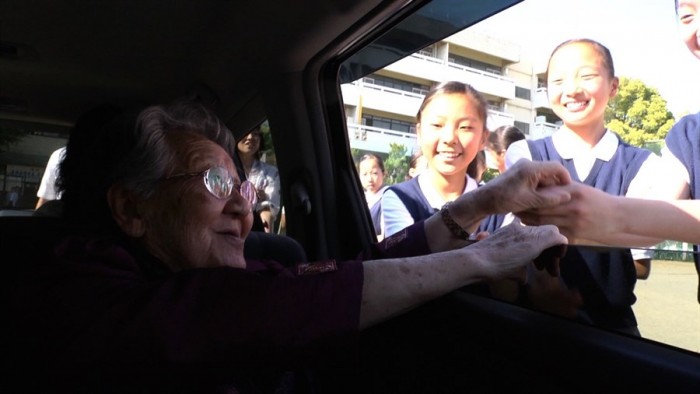Statistics illustrate the gravity of a situation from the scope of its impact—for instance, over 200,000 women and girls, euphemistically termed ‘comfort women,’ were forced into sexual slavery by the Japanese Imperial Army during the Second World War. Yet, the individuals affected by these circumstances often get lost in the vast numbers presented.
The Apology is a documentary by debut filmmaker Tiffany Hsiung that premiered at Toronto Hot Docs this year. It focuses on the personal stories of growth and resilience of surviving comfort women, known fondly to many as ‘grandmothers.’
Grandma Gil is a featured survivor of the comfort women system, who was taken at the age of 13 after following a man who, after telling her she would find work in a factory, brought her instead to a comfort station. She recounted crying out “Mom! Mom!” in pain during the rapes, hoping that her mother who lived across the ocean could rescue her. Grandma Adela, a survivor from Manila, recounted being kidnapped by Japanese soldiers and forced into a truck with her two best friends at the age of 14. They were driven to a comfort station, and while she screamed and refused to go inside the dark building, she was brutally knocked out by a soldier.
“When I woke up, I was already bloody,” she said. “Bloody down there.”
Grandma Cao from China, who was taken at the age of 18, recounted giving birth to two babies—a boy and a girl—during her time at the comfort station. After giving birth, she strangled one, and threw out the other.
“I had no choice,” she said, recalling how emotionally damaging the experience was.
I am well-acquainted with the comfort women issue. In addition to going on a study tour with a non-profit organization called the Association for Learning and Preserving the History of WWII in Asia (ALPHA), I have written extensively about the issue. With ALPHA, I visited a museum in Seoul. It featured an artifact from the war: A condom with the word “attack” written on it in Japanese, signifying the sentiment echoed in the militaristic system when it came to sexual slavery. It’s hard to imagine those on the receiving end of such hatred and misogyny.
As I watched The Apology, I could not help envisioning the condom from the museum in contrast to the young, terrified girls who endured these daily attacks. Hsiung provides a glimpse into the impact of the war on the survivors, following their continual growth and struggle to move forward and to hold the Japanese government accountable for their actions.
These strong women—most of them over the age of 80—fight tirelessly for justice and reconciliation. They re-live the pain of their memories, sometimes to hostile audiences, in order to ensure history will not repeat itself. Films such as The Apology and other outreach efforts expose these stories to the public, but as of today no formal reparations have been made as the right-wing, ultra-nationalist Japanese government adamantly whitewashes history.
The Apology provides an international, unified narrative that offers a glimpse at the individuals behind the overarching term of ‘comfort women.’ One cannot walk away from the film without a sense of anger at the ongoing injustice towards these survivors. As a woman in the decisive generation that will impact the course and recounting of history of the comfort women issue, this documentary illustrates living history’s ticking clock— many of these women have passed away without a chance to tell their stories. Within a few years, many of those who remain will pass on. The efforts of the grandmothers and their supporters should not be futile. Remaining generations must continue to hold Japan accountable until these grandmothers receive the apology they deserve. Only then will history be reconciled.








